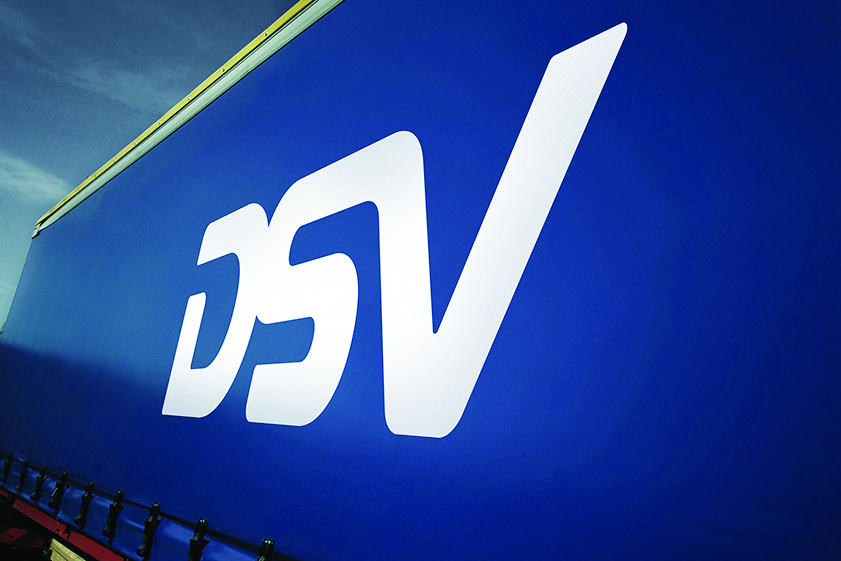Speculation over DSV Panalpina’s next takeover target
28 / 11 / 2019

Investment bank Berenberg has taken a look at suitable takeover targets for fast growing forwarder DSV Panalpina.
Although the Copenhagen-headquartered company is still busy digesting its largest acquisition to date, Panalpina, it has already indicated its appetite for further acquisitions, in particular of companies with a strong road transport business.
In a research note, Berenberg looked at the potential for acquisitions, in particular forwarding companies with a strong road presence and it identified three companies that could be potential targets.
Berenberg said that the company could begin to turn its attention to its next acquisition in around 18 months, once the integration of Panalpina is complete.
“The new chairman (Thomas Plenborg) has already gone on record saying that DSV might consider buying a road freight business after the integration with Panalpina is complete,” the company said.
“The market is also highly fragmented, much more so than the rest of the freight forwarding market, which means that an acquisition is highly unlikely to be blocked by regulators.
“However, this is a comparatively low-margin business, even for DSV, and so the level of synergy accretion from any such deal is likely to be lower than from the UTi and Panalpina acquisitions.
“That said, the businesses it could acquire are also likely to be cheaper than pure-play forwarders, so the returns from the acquisition could still be very attractive.
“Given that part of the advantage of scale in road freight is from having a larger network, we think DSV would likely build on its existing road division by acquiring a European asset.
“It remains possible that DSV might still acquire another forwarder as its next M&A target, as the market remains fragmented and there are several potential candidates.
“We also know that the M&A model which DSV has works incredibly well with these businesses – transferring volumes onto its own scalable platform to drive synergies.
“Management has also said in the past that it is interested in growing outside Europe (currently, over 60% of the post-Panalpina merger business’s gross profit comes from EMEA), which may provide an additional clue about the next operation on its list.”
The three forwarder companies identified by Berenberg are: DB Schenker, Hellmann Worldwide Logistics and Dachser.
However, there is no indication whether these companies would even be willing to sell their business.
On DB Schenker, the bank said that there had been rumours in the market for years that parent company Deutsche Bahn “might try to carry out an IPO of its logistics business”.
The bank added: “We think it is plausible that it might attempt a trade sale instead. Although it is nearly twice the size of DSV Panalpina by revenue, we think it might be manageable to digest, and would make DSV the largest global logistics provider by some distance.
“It is also possible it could acquire one of the divisions on a standalone basis.”
In 2018, DB Schenker posted revenues of €17bn and was the largest subsidiary of the wider group, making up 31% of revenues.
About 40% of revenues come from road freight, Berenberg said, with the rest coming from air, sea and contract logistics operations.
“The business has achieved only very low growth over the past decade, growing at a c1.1% CAGR since the financial crisis, and is relatively low-margin, roughly half DSV’s profitability levels before it acquired Panalpina, with a c4% earnings before interest, tax, depreciation and amortisation (ebitda) margin.”
Another suitable target could be Hellmann Worldwide Logistics, although the bank cautioned it had “little insight into the family’s willingness to sell”.
“Hellmann is a privately owned German freight forwarding and contract logistics business, with US, UK and Chinese exposure.
“With €3.2bn of revenues, 924,000 TEU and 557,000 tonnes of airfreight, it would appear to offer a good fit for DSV.
“About one-third of Hellmann’s revenues come from road freight, and Europe remains the largest region for the business.”
The final company is Dachser, although again the Berenberg said it has “no insight into whether the family owners would consider selling – the chief executive, who is [the] founder’s grandson, is 57”.
One other potential target, with less on an emphasis on road, is AP Moller Maersk-owned Damco, although it said this was unlikely given that Maersk is keen on “expanding up the value chain in seafreight”.
“That said, it has struggled to make Damco work for years and is under pressure to return capital to shareholders,” Berenberg added.
One final potential target could be publicly traded Japan-based Kintetsu World Express which could prove an easier target than a private company and would bring with it 580,000 tonnes of airfreight.
However, the bank added that the cultural fit may be an issue compared with buying a European or US business.













